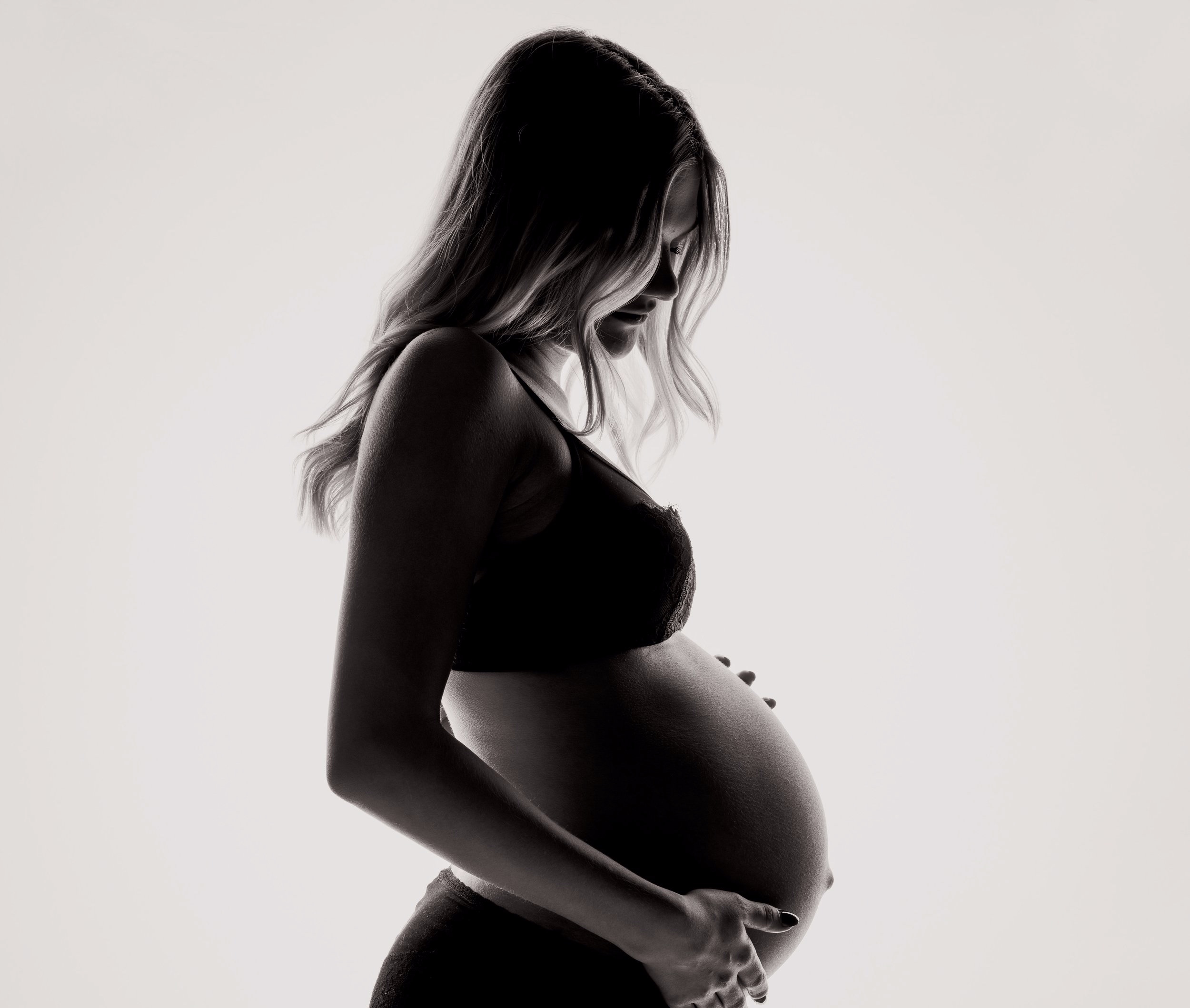Staying Fit In Pregnancy With Dr Joanna Helcké
Just found out you're expecting, looking for some expect advice on the right exercise and nutrition to keep you and your baby healthy?
We got in touch with Dr Joanna Helcké, leading UK specialist in pregnancy and postnatal fitness, and founder of the complete pregnancy fitness kit, the FitBumpBox, to pick her brains and get some top tips and on keeping fit through pregnancy and beyond.
Hi Joanna, Thanks so much for allowing me to pick yours brains. Can you start by telling us a little bit about yourself; Why you became a pre and postnatal trainer, and how joannahelcke.com came about?
Yes, of course: my decision to retrain and specialise in the field of pregnancy and postnatal fitness was very much born from my own experiences of motherhood. After the birth of my first two boys I started to exercise regularly and I soon discovered that it had a wonderful effect in terms of my emotional wellbeing and not just physical fitness. During my third pregnancy I carried on exercising right up until a couple of day before giving birth and my postnatal recovery was much speedier than with my previous two. It got me thinking and it had had such a hugely positive effect on my life as a mother of three that I decided to leave my career in academia and retrain in perinatal fitness.
Dr Joanna Helcké
I started off at a local level but was soon looking into ways of getting safe pregnancy and new mum fitness out to a much wider audience, hence my creation of an online week by week programme and now, the launch of the FitBumpBox range of products.
What’s the first bit of advice you give to new mums-to-be?
The key piece of advice that I give mums-to-be is not actually related specifically to fitness and it is this:
“If you ever feel uneasy or worried about anything in pregnancy and that even when reassured by others you still have that niggle in the back of the mind, then go with your instinct. Never be fobbed off. Always stand up for yourself. Ask for a second, third or even fourth opinion if that’s what is needed to make you feel safe. “
I have to say I love the concept behind your new FitBumpBox range. At what point in our pregnancy should we be looking at purchasing a box and starting one your programmes?
The FitBumpBox prenatal Pilates programme starts at week 14 of pregnancy, as in general I don’t advise mums-to-be to take a new form of fitness (however gentle it is) in their first trimester when the body is laying down the foundations of pregnancy. Starting at the beginning of the second trimester is ideal as it will give you the wherewithal to protect your body against the typical aches and pains that occur in pregnancy.
Having said this, the programme is designed in such a way that it can be safely joined at any point during the second and third trimesters and very early motherhood.
And what kind of exercise can we expect from your programme, is it suitable for all fitness levels?
The weekly workouts are essentially Pilates-inspired but adapted heavily to make then safe and genuinely useful for and specific to pregnancy. They are suitable for all fitness levels, so for example, I have people who literally do no exercise normally and who are fine with these workouts. At the other end of the spectrum, I have very active mums-to-be who carry on with their pre-pregnancy fitness regime (running, kettlebells or whatever) and then use this as a pregnancy-tailored add-on to help protect themselves against backache.
There’s always a lot of conflicting advice on pregnancy and exercise, such as when we can exercise in pregnancy and how much we should do, with some claiming that we can do pretty much everything we did before we were pregnant and others saying we need to take it easy in case it triggers a miscarriage. Which advice is correct?
That’s a very good question and the answer is not clear cut, black and white…. It all depends on the individual and each person’s experience of pregnancy. There are, however, some underlying guiding principles so let’s set out some reliable rules right here, right now!
If you are in the first trimester, healthy, with no complications AND you have been a regular and consistent exerciser before your pregnancy then there is no reason for not carrying on with your usual fitness routine, whether it be running, weight training or even karate.
There is a caveat to this: keep the intensity at a level which doesn’t leave you pouring with sweat. So, for example, if you are used to doing high intensity interval training (HIIT) then you may carry on training in this manner but you need to take it to a level where your body does not overheat. This is because the growing foetus cannot regulate its body temperature and overheating could be detrimental to development. So work at a more gentle and measured level.
Remember that every woman comes to her pregnancy with her own level of fitness so what might seem moderate intensity to one person could well be extremely high intensity to another person. So work at a level that is right for you and for your body.
In the first trimester (and bearing in mind all the above points I have made) it is, therefore, possible to carry on with all sorts of forms of exercise which could even be contraindicated from the 2nd trimester onwards. Because your baby is still protected inside the pelvis - there’s no bump showing yet - contact sports are acceptable, as are certain more risky sports such as horse riding and skiing. I am not necessarily advocating them, and I still want to impress on you the importance of not overheating but if you decide to carry on during these early months then it is good to know that your tiny baby is well protected by the pelvis. Once into trimester 2 that is no longer the case and risky activities should be stopped.
If you are a fitness novice and decide to take up exercise during pregnancy for the wellbeing of your baby and also for your own health, then that is great news but please wait until the second trimester. Starting a new form of fitness in trimester 1 when the body is so very busy laying down the foundations of pregnancy is not recommended. So be patient and then take up regular moderate exercise that is tailored for pregnancy at the start of the second trimester.
Listen to your body: probably THE most important piece of advice to take note of. If you are, for example, a seasoned marathon runner yet your pregnant body feels tired, fatigued and is taking longer than normal to recover then please take heed of these signs. It is your body telling you to slow down and go easy. Never override these feelings simply because you feel somehow that you “should be able to carry on”, that “pregnancy is not an illness”, that your “friend Amelia ran until a week before giving birth” or whatever else the little voice in your head is saying.
Once you are in the second trimester it is time to drop traditional abdominal exercises – crunches, planks, V-sits, bicycle sit-ups – in favour of pregnancy-specific core stability work that targets the deepest layer of abdominals, just like the FitBumpBox programme. This will protect you against back pain and encourage a speedier postnatal recovery of the tummy muscles. Traditional abs exercises target the outermost layer of muscle (the so-called six-pack) which needs to stretch and lengthen so as to give your baby room to grow – don’t try and fight this natural and necessary process!
A pregnancy fitness rule that applies to every woman whatever her fitness level is this: be extra careful to exercise with excellent technique during pregnancy. Your body is naturally more prone to injury during the perinatal period for a number of reasons: the presence of high levels of relaxin in the body, the postural changes that accompany pregnancy and the extra weight that you are having to carry around. All these elements can make the body more vulnerable so always focus on perfect technique and if that means slowing down your movements then do so!
Amazing tips thanks, it’s so good to get some clear advice on that topic. Moving on to the third trimester, do you recommend exercising right up to those very last weeks of pregnancy?
This is entirely dependent on the individual and her experience of pregnancy. If a woman is feeling truly fit and well right up to her due date (and even beyond) then there is no reason to stop exercising if it makes her feel good. Again, this is dependent on her healthcare professionals being happy for her to continue with exercise. On the other hand, if late pregnancy has taken its toll and a woman feels as though exercise is a huge and unwelcome chore, then it is time to stop and rest.
Thats something I need to keep in mind, as resting is not something I am very good at. Lets talk post pregnancy, what’s the best way to get your fitness up and lose the lbs?
I always encourage new mums to avoid quick fixes whether on the fitness front or the weight loss front. It is never worth diving into the wrong sort of fitness after having had a baby, simply because it is the quickest route to fat loss. One day, it catches up on you and the body pays the price, whether it be problems relating to the pelvic floor, to back pain or to persistent abdominal separation.
The best way to build up postnatal fitness is to lay good foundations first, rebuilding pelvic floor and abdominal strength, alongside low impact exercise during the first 6 months of motherhood. Low impact doesn’t have to mean that it is low intensity. It is perfectly possible to work hard whilst keeping things low impact. Interval training using body weight exercises is very effective for weight loss and can be tailored so that it is safe for the postnatal body.
But when it comes to dropping the lbs then nutrition is key – I would say that around 80% of results will come from eating in a consistently healthy manner. Again, healthy eating is not about being restrictive or punishing. Instead it is about ensuring that what you choose to consume is going to nourish and support you and, in turn, your baby especially if you are breastfeeding. Food that is nutritionally dense will ensure that you don’t end with cravings, especially when sleep-deprived and short on energy.
And finally does exercising, eating right and keeping fit in pregnancy makes it easier to lose the weight afterwards?
It is nearly always going to be an easier job to get fit and lose the baby weight if you have been able to keep fit and active throughout pregnancy – your body will be more metabolically active, you will have a higher muscle mass, you will have muscle memory which enables you to regain fitness more quickly and the likelihood is that you will have put on less weight than if you had been sedentary throughout pregnancy. Having said this, exercising in pregnancy is not an option for everybody. Many mums-to-be, for a whole host of reasons, simply have no choice other than to be inactive and they too will be able to lose weight steadily during the postnatal period.
To find out more about Dr Joanna Helcké and her new FitBumpBox head to http://www.fitbumpbox.com
Are there any other questions you would like me to put forward to Dr Joanna Helcké? Let me know in the comments below.

























